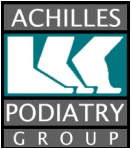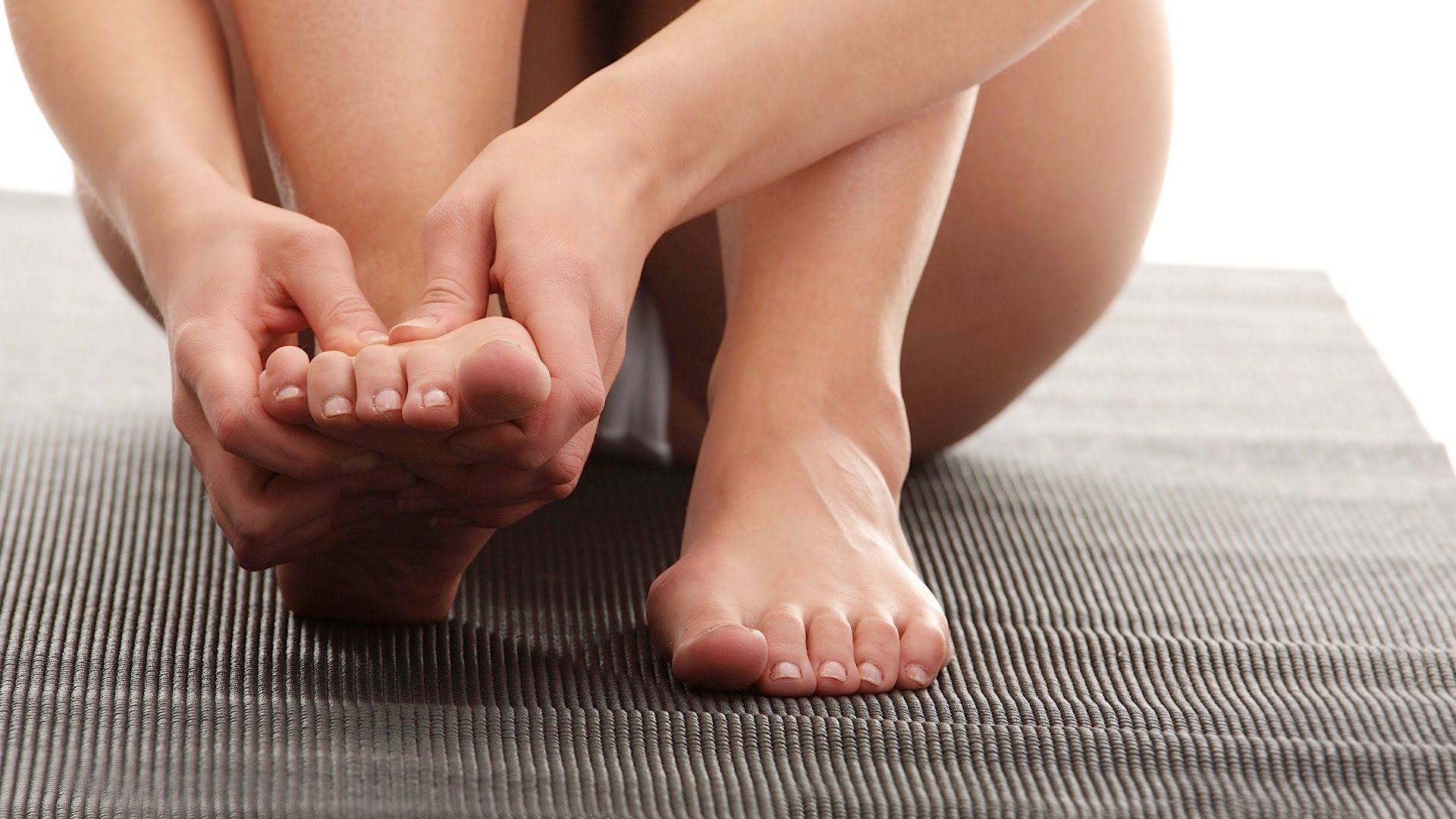Foot cramps are caused by painful, intense, involuntary spasms of the muscles. They are usually short-lived but can be really unpleasant and recovery can take a few days. Foot cramps most commonly occur in the arch of the foot but people also complain of toe cramps and calf muscle cramps.
They are often caused by fatigue, reduced levels of certain chemicals, hormonal factors and illness.
Cramping can occur any time day or night and are often associated with exercise. Anyone can get them but they become more common over the age of 80.
Here we will look at the symptoms, causes and treatment options for calf, toe and foot cramps.
What Is Going On?

To understand what causes toe, foot and calf muscle cramps, we need to know how muscles works. All muscles work in pairs – an agonist and antagonist. In order for them to work properly, as one muscle (agonist) contracts, the other (antagonist) relaxes to allow a smooth, controlled movement. If the antagonist muscle doesn’t relax properly, cramp develops. Alternatively, if a muscle contracts suddenly, with great force and then can’t relax, cramp can develop.
Leg cramping in the calves, feet or toes affect approximately one in four people over the age of sixty, increasing to one in three over the age of eighty.
What Do They Feel Like?
Foot cramps are usually accompanied by sharp, intense pain and the muscle may feel “knotted”. They most commonly occur in the arch of the foot, toes or the calf muscles. They may last for just a few seconds, or may continue on and off for a few days. Toe cramps may cause the toes to curl over each other.
What Causes Them?
Foot cramps often have no obvious cause, but there are a number of factors that increase the risk:
1) Lack of Vitamins & Minerals
The body needs the appropriate balance of vitamins and minerals to function properly. Foot cramps are commonly caused by imbalances in:
Calcium: helps transmit nerve impulses to the muscle cells allowing the muscles to contract and relax normally. Excessive caffeine intake, lack of vitamin D and high sodium levels can reduce calcium levels
Vitamin E: promotes good circulation and is needed for the production of red blood cells. Lack of vitamin E can therefore reduce oxygen levels to the muscles resulting in foot cramps
Potassium: low potassium levels are known as hypokalemia and can be caused by excessive vomiting or sweating, kidney problems and medication
Vitamin D: helps absorb calcium and magnesium. Getting at least fifteen minutes of sunlight a day helps prevent a lack of vitamin D
Magnesium: lack of magnesium locks calcium and sodium ions into the muscle, preventing it from relaxing
Vitamin B6: is vital for health function of nerves and muscles
2) Nerve Damage
Nerves transmit the signals from your brain to the muscles, telling them when to contract and relax. If a nerve is damaged e.g. pinched, signals cannot pass through properly correctly resulting in foot cramps
3) Dehydration
Sweating reduces the levels of calcium, potassium and magnesium. Smoking and excessive alcohol intake also increase the risk of dehydration
4) Health Issues
Cramp may be a sign of an underlying health condition. Conditions such as Diabetes, thyroid problems, anaemia, Huntington’s Disease, Parkinson’s all increase the risk of foot cramps
5) Medication
Some medications can cause cramping as a side effect. One of the most common is Diuretics, commonly known as water pills, which increases urine production that can cause an imbalance of calcium and potassium
6) Reduced Circulation
Long periods in the same position (e.g. sleeping) reduce circulation to foot. This reduces oxygen levels in the muscles leading to cramp
7) Lack of Exercise
Can result in muscle weakness and obesity, both of which increase the risk of cramp
8) Muscle Tightness
Tightness in the calf muscles can cause calf cramps and tightness in the foot muscles, especially those running under the sole of the foot, can cause foot and toe cramps
9) Fatigue
If you have been over-working your muscles, e.g. too intensely or for too long, or your body is generally fatigued, you are more likely to develop cramp. Athletes and dancers who place more stress on their feet are more prone to foot and toe cramps, runners are more prone to calf muscle cramps
10) Injury
Trauma often causes the muscles to spasm to protect from further damage e.g. calf muscle cramps often develop if the calf muscle has been overstretched and/or torn as a protective mechanism to prevent further injury. Whilst this is helpful in the short term, symptoms sometimes continue longer than necessary
11) Pregnancy
Foot cramps, especially at night are common in the third trimester of pregnancy due to pressure from the uterus on the veins bringing blood up from the legs
12) Nocturnal Cramps
Foot cramps often develop at night due to decrease circulation from staying in one position and dehydration, most commonly in the calf muscles. This is most likely due to people sleeping with their knees bent and feet pointing down which places the calf muscle in a shortened position.
13) Ill-fitting Shoes
Wearing high heels or narrow, pointed shoes can increase the risk of toe cramps by squashing the feet
The exact cause of cramp is often difficult to define and maybe due to a combination of these factors.
When to See Your Doctor
In most cases, foot cramps are not serious and are rarely a medical emergency. But sometimes, they can be a sign of an underlying medical condition. Achilles Podiatry is the Foot and Ankle Specialist of Indiana and If you believe you may be experiencing cramping of your feet or toes, contact Achilles Podiatry for further evaluation and treatment.
Source: Foot Pain Explored

